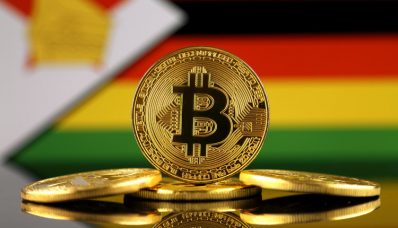Zimbabwe - A Blockchain Bellwether for Emerging Markets?

Share this article
The world’s eyes are on Zimbabwe, watching a coup d’état unravel 37 years of Mugabe’s reign. As uncertainty in the country over the takeover reached a climax, Zimbabwe’s Bitcoin exchange saw prices reach nearly double those on the global market. The surge drew headlines, attributing the popularity of the digital currency to the economic instability of the country and glossing over a much more significant implication- the failure of the banking system that underlies the high demand for Bitcoin in Zimbabwe can be found across emerging markets. If anything, the price surge is an emphatic reminder of how cryptocurrencies are making an impact on the developing world.
Bitcoin’s popularity in Zimbabwe is in large part due to a scarcity of US dollars, which were adopted as official currency in 2015 after the disastrous hyperinflation of the Zimbabwean Dollar. For those with access to banks, strict limits on cash withdrawals and transfers, coupled with a well-founded suspicion of the government’s ability to handle the economy, have eroded citizens’ trust in their own financial system. Fiat shortages and the failure of the banking system forced many to seek out alternatives, of which Bitcoin presented a viable option. Unlike for many in the West, Bitcoin is not just a value asset in Zimbabwe, but a way to store wealth securely, move funds freely and access the global market.
However extreme the case of Zimbabwe may seem, the financial barriers faced by the average citizen are typical in the developing world. In fact, Zimbabwe is looking more and more like a bellwether for the role digital currencies will play in bypassing the banking system altogether, paving the way for anyone with internet access to store, transfer and even borrow money.
In Southeast Asia, more people have Facebook accounts than bank accounts- over 70 percent of the population is unbanked. Without well-developed financial infrastructure, lack of access to simple services like money transfers, loans and wealth storage presents a formidable obstacle to reducing poverty. Nevertheless, nascent signs of a growing trend to address these problems via the blockchain are already beginning to show.
One such example is Bitspark, a remittance service based out of Hong Kong, which relies on Bitcoin for cash-in, cash-out transactions. Migrant workers from emerging markets like the Philippines, Indonesia and Vietnam use the service for the comparatively low 1% commission fee, made possible through the company’s reliance on Bitcoin. The endeavor has been so successful, the company is expanding beyond Asia into Nigeria and Ghana. Remarkably, the service has even managed to overcome an oft-repeated hurdle to mainstream adoption of cryptocurrency- customers don’t even have to understand Bitcoin to use it.
In Indonesia, the world’s fourth largest country, a staggering 80% of the population does not have a bank account. But with increasing levels of smartphone penetration, access to banking may be made redundant with new applications that utilize cryptocurrency. There are already signs the technology is catching on- members of the country’s main Bitcoin exchange grew from 50,000 in 2015 to 500,000 this year. In the nation’s capital, Jakarta, a QR based payment app called Pundi-Pundi is gaining in popularity with over 100,000 users. The app will soon allow anyone without a bank account to trade and store cryptocurrency via smartphone, and even make instant crypto-to-fiat payments at over 600 stores.
While these trends may at first appear easily dismissible, this is not the first time technology has allowed emerging markets to leapfrog ahead. Mobile phones reached hundreds of millions before they even had access to landlines. As the crypto space continues to develop and expand, so too will new start-ups set out to succeed where the banking sector has failed. Looking around at all the signs, it becomes clear- we stand on the precipice of a financial revolution.
Share this article
